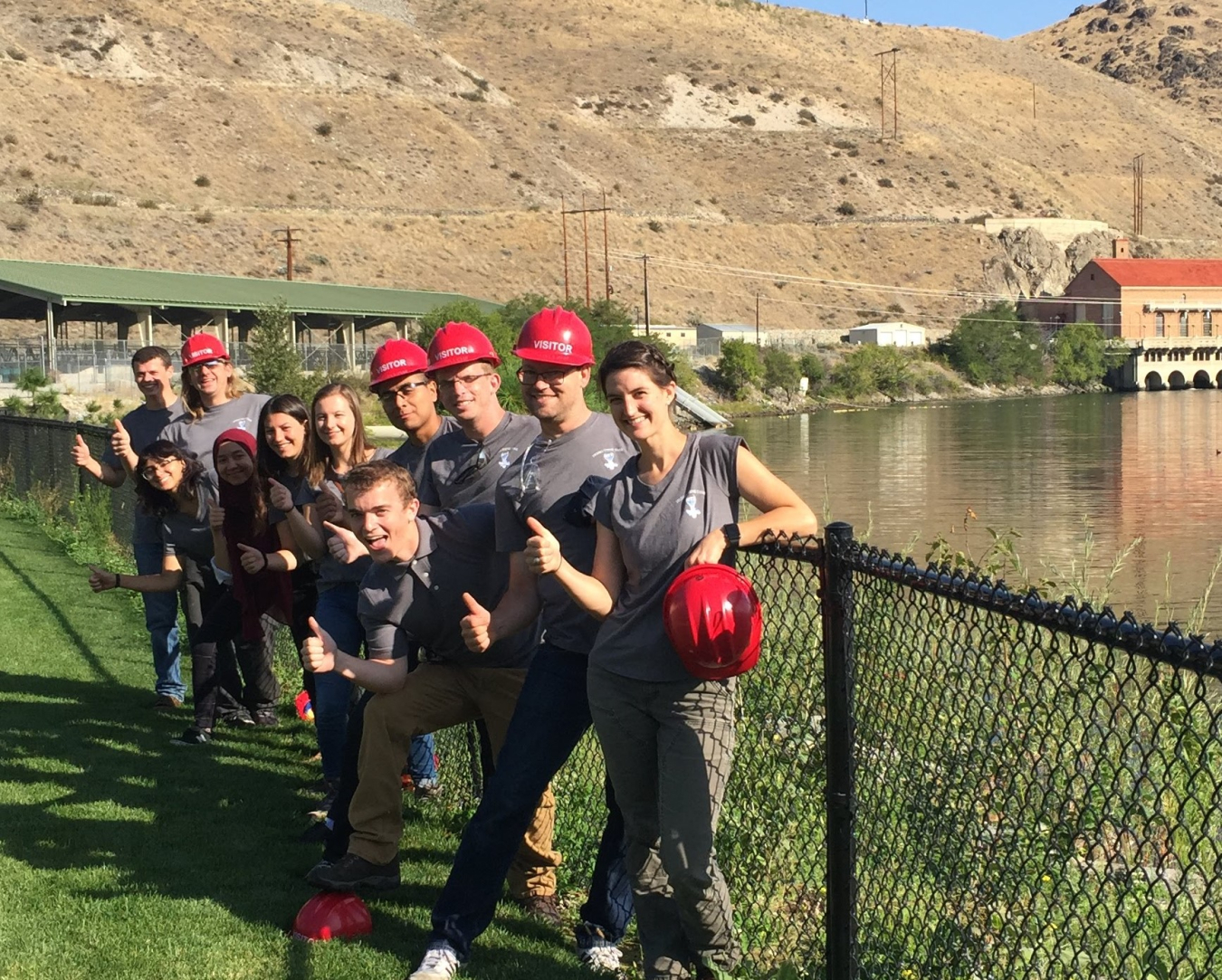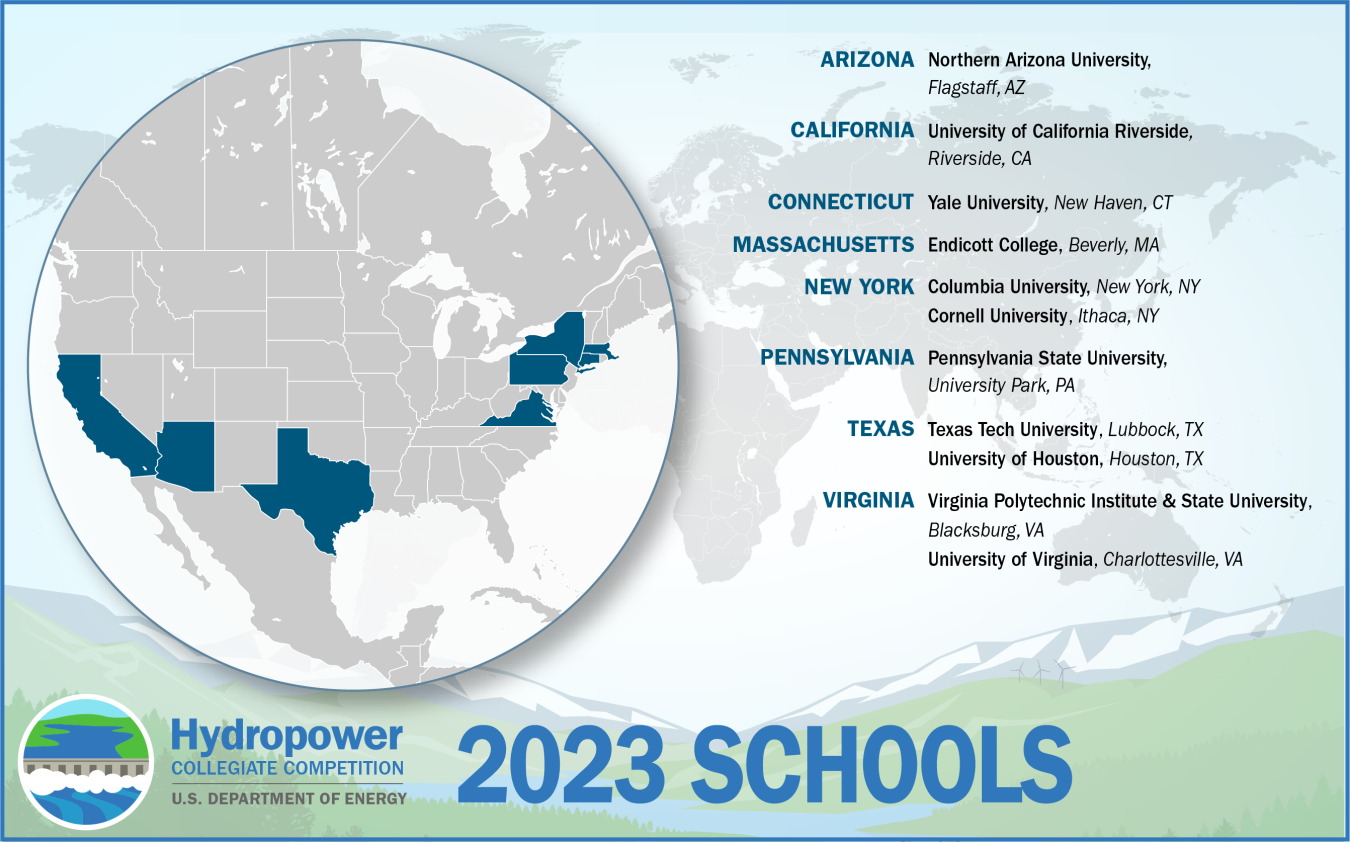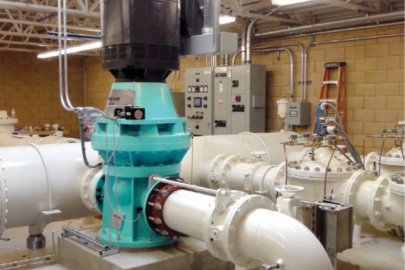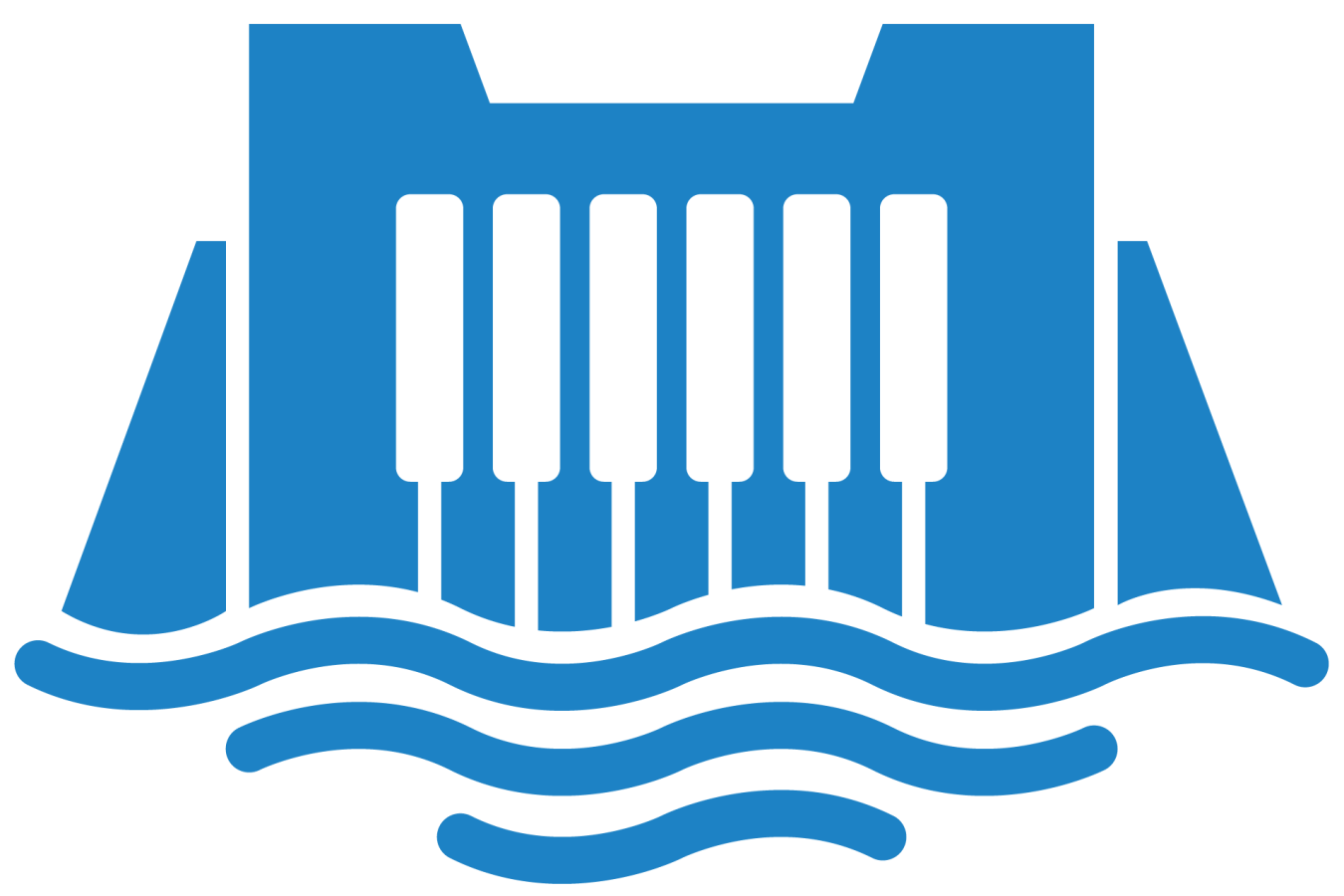WPTO launched the inaugural Hydropower Collegiate Competition to inspire the next generation of hydropower workers.
Water Power Technologies Office
March 1, 2023Data Access, Analytics, and Workforce Development
Project Name: Hydropower STEM and Workforce Development
Project Team: National Renewable Energy Laboratory (lead) and the Hydropower Foundation
Competitors: Columbia University; Cornell University; Endicott College; Northern Arizona University; Pennsylvania State University; Texas Tech University; University of California, Riverside; University of Houston; University of Virginia; Virginia Polytechnic Institute and State University; and Yale University

In 2022, the U.S. Department of Energy’s Water Power Technologies Office (WPTO) launched the inaugural Hydropower Collegiate Competition (HCC) to pave the way for a new generation of diverse, highly skilled workers to modernize the U.S. hydropower fleet and chart their careers in clean energy. The industry needs a new generation to fill these jobs and support the country’s clean energy transition.
HCC participants will gain direct hydropower industry experience, valuable exposure to potential career pathways, and greater understanding of hydropower’s role in a clean energy future. Eleven schools, including three minority-serving institutions, are participating in the inaugural competition.

The HCC is intended to inspire and guide students to join the hydropower workforce. At the same time, the competition aims to incentivize academic leaders to include hydropower in their institution’s curricula, help align industry needs with workforce development programs, and get people excited about growth in new or modern hydropower technologies, like low-impact hydropower, pumped storage hydropower, and adding power to non-powered dams.
Through this competition, WPTO and its partners are working to address several barriers that could slow hydropower workforce growth. HCC organizers are performing outreach to underrepresented students to help increase diversity in the hydropower industry. The competition also aims to spread awareness and skills to better prepare students for careers in hydropower.
WPTO funds the HCC, while the National Renewable Energy Laboratory and the Hydropower Foundation administer the competition.

Hydropower Projects
-
 An Oak Ridge National Laboratory report found opportunities to develop hydropower on conduits in every state, totaling 1.41 gigawatts of new generating potential.
An Oak Ridge National Laboratory report found opportunities to develop hydropower on conduits in every state, totaling 1.41 gigawatts of new generating potential. -
 A General Electric Research-led team demonstrated a new hydropower turbine design and monitoring methodology that allows plant operators to adjust power output in a few seconds to meet energy demand without needing to start or stop units.
A General Electric Research-led team demonstrated a new hydropower turbine design and monitoring methodology that allows plant operators to adjust power output in a few seconds to meet energy demand without needing to start or stop units. -
 The Cybersecurity Value-at-Risk Framework tool enables hydropower owners and operators to understand their individual plant’s cybersecurity risk and the best approach to mitigate those risks.
The Cybersecurity Value-at-Risk Framework tool enables hydropower owners and operators to understand their individual plant’s cybersecurity risk and the best approach to mitigate those risks. -
 A Pacific Northwest National Laboratory study found hydropower could still be relied upon to supply flexible power during periods of high energy demand—even during the most severe droughts.
A Pacific Northwest National Laboratory study found hydropower could still be relied upon to supply flexible power during periods of high energy demand—even during the most severe droughts.
WPTO's Hydropower e-newsletter features news on R&D and applied science to advance sustainable hydropower and pumped-storage technologies.
The WPTO e-newsletter brings funding opportunities, events, publications, hydropower, and marine energy updates directly to your inbox.


